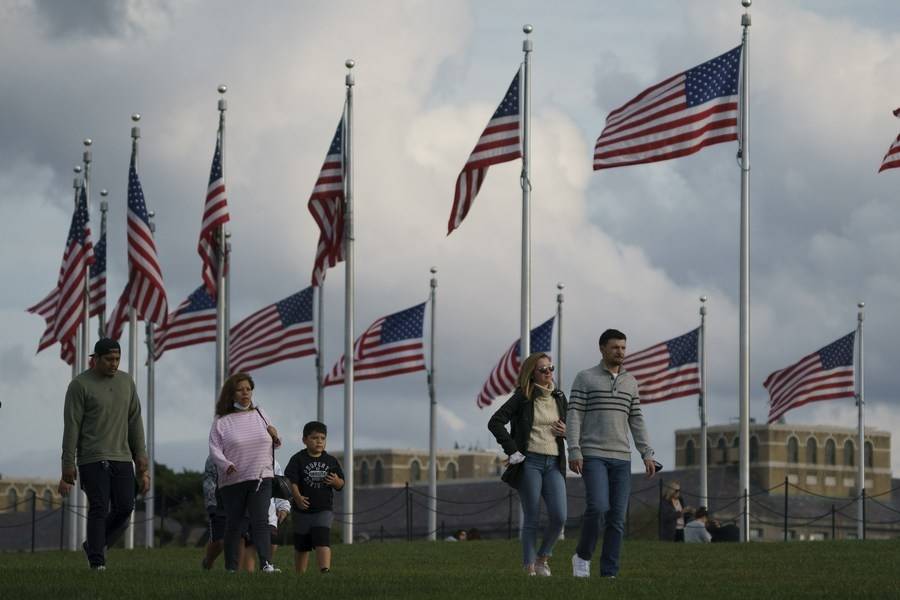A noted economist has said that the rapid spread of Omicron could exacerbate supply chain woes and amplify record-high inflation pressures, reports Asian Lite News
The rapid spread of the new Omicron strain of coronavirus has not just overwhelmed the healthcare infrastructure across the globe, but also made financial markets in the United States anxious about stagflation – that awful combination of rising inflation, declining growth with high unemployment.
The pace at which it is spreading – the strain was discovered in Africa earlier this month and nine countries have now reported cases – threatens to disrupt whatever little normalcy the people have seen in recent months.
The World Health Organization (WHO) has categorised Omicron as a “variant of concern” because of the higher risk of infection and the possibility of vaccine evasion. Several countries, including the US, Canada and the UK, announced restrictions on travel from countries in southern Africa.
As the world moved to control the spread of Omicron, the markets showed immediate reaction to the news. Risk assets sold off, including sharp losses in stocks worldwide. The VIX, often thought of as a “fear index,” surged nine points to more than 27 on Friday. Oil prices fell more than 10 per cent. Meanwhile, yields on US government bonds, including a 16 basis points decline in the 10-year Treasury, registered their biggest one-day move since last year.
A noted economist told Fox News that the rapid spread of Omicron could exacerbate supply chain woes and amplify record-high inflation pressures.

“Those two things together: lower growth, high inflation are stagflation, and that’s what the market is worried about right now,” said Mohamed El-Erian, the chief economic adviser for financial services firm Allianz.
“I think it’s time for a change in policy at the Fed… inflation is not transitory and it’s really important for the Fed to realise this,” he added.
Omicron was first discovered in samples from southern Africa earlier this month. As more and more scientists started studying the latest world-threatening infection after Delta, it emerged that Omicron contained more than 30 mutations – the highest till date in any of the variants of coronavirus.
Scientists have expressed hope that the existing armoury of vaccines should be able to control the spread of Omicron, research is on to find more effective vaccines and booster shots.

World economy fears
The variant has also dealt a blow to optimistic hopes that the world economy would enter 2022 on a firmer footing, potentially undermining plans by policy makers to focus on inflation rather than weak demand.
The imposition of travel restrictions will shake consumer and corporate confidence, likely limiting activity in some places just as the holiday season gets underway in many economies. Japan will effectively ban the entry of all foreign visitors as part of its plan to curb the virus spread, broadcaster NTV reported.
The worst case scenario would be if the mutation necessitates a return to growth-crippling lockdowns, which would threaten already strained supply chains and damage recovering demand. That would reignite fears of a stagflationary mix of faster inflation and slower growth.
The International Monetary Fund in October warned that the recovery has lost momentum and become increasingly divided. The fund calculated gross domestic product for advanced economies will regain its pre-pandemic level in 2022 and even exceed it by 0.9% in 2024; it reckoned emerging and developing markets would still undershoot their pre-pandemic forecast by 5.5% in 2024.
One challenge for policy makers battling the economic aftershocks of a sustained outbreak will be the fact that they have fewer options after last year’s stimulus effort.
Only a handful of central banks have tightened monetary policy since the end of last year’s recession and the developed world’s key benchmarks remain around zero, meaning they lack room to come to the rescue again. Governments are already shouldering soaring debt burdens.
“In the absence of concerns about any negative impact of the variant, the Fed would in all probability speed up its tapering of asset purchases, but the uncertain downside effects of the variant likely leads the Fed to postpone any such decision,” said Mickey Levy, chief economist for the U.S. and Asia at Berenberg Capital Markets to Bloomberg.













